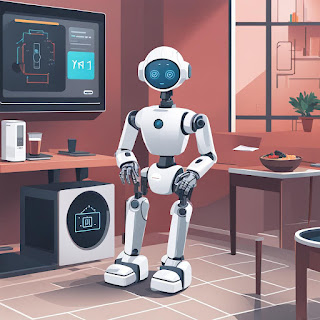How AI is Making Its Way into Our Everyday Lives
Artificial intelligence (AI) is moving out of research labs and highly specialized applications, and into more common, everyday uses that impact our daily lives. You may not even realize some of the ways you already interact with AI! Here are some examples of how artificial intelligence is becoming ingrained in regular day-to-day activities:
Virtual Assistants
From Siri to Alexa, many of us now have access to virtual assistants via our smartphones or smart speakers. These AIs leverage natural language processing to understand commands, answer questions, make recommendations, and more. Virtual assistants like Google Assistant can help with everyday tasks like setting alarms, controlling smart home devices, making calls, and giving you the news or weather forecast.
Smart Device Automation
Beyond just voice assistants, AI helps enable automation in smart home devices. Your Nest thermostat learns your temperature preferences over time and programs itself accordingly to optimize heating and cooling. Robot vacuums like the Roomba autonomously clean your floors daily without intervention using AI-powered navigation. Even smart lightbulbs can turn on/off based on your usage patterns thanks to artificial intelligence.
Computer Vision
Computer vision, a subset of AI focused on processing and analyzing visual data, is being used in everything from photo tagging to autonomous vehicles. But it also has more everyday use cases like detecting faces in phone cameras to enable auto smile capture or facial recognition sign-ins. Computer vision also enables assistive devices for the visually impaired by recognizing objects, text, people and more.
Recommendation Systems
Many of the entertainment, shopping, and social media platforms we use every day rely heavily on AI-powered recommendation engines. Services like Netflix, Amazon, YouTube, and Spotify analyze our preferences and viewing history to suggest personalized content and products we may enjoy. Even social media feeds are ordered based on AI determining relevance to each user.
Spam Filtering
Most email services today use AI techniques like natural language processing to analyze messages and automatically detect spam. By learning to recognize the patterns and keywords in spam emails over time, AI-powered filters can prevent unwanted messages from cluttering your inbox. A similar technology is used for filtering out robocalls.
As you can see, AI is making inroads into many facets of routine life. And these are just a few prominent examples. From product recommendations to smart appliances, and virtual assistants to computer vision, artificial intelligence is becoming integral to everyday activities. The next time you interact with a helpful AI, consider how this technology is streamlining and enhancing regular experiences!




Comments
Post a Comment